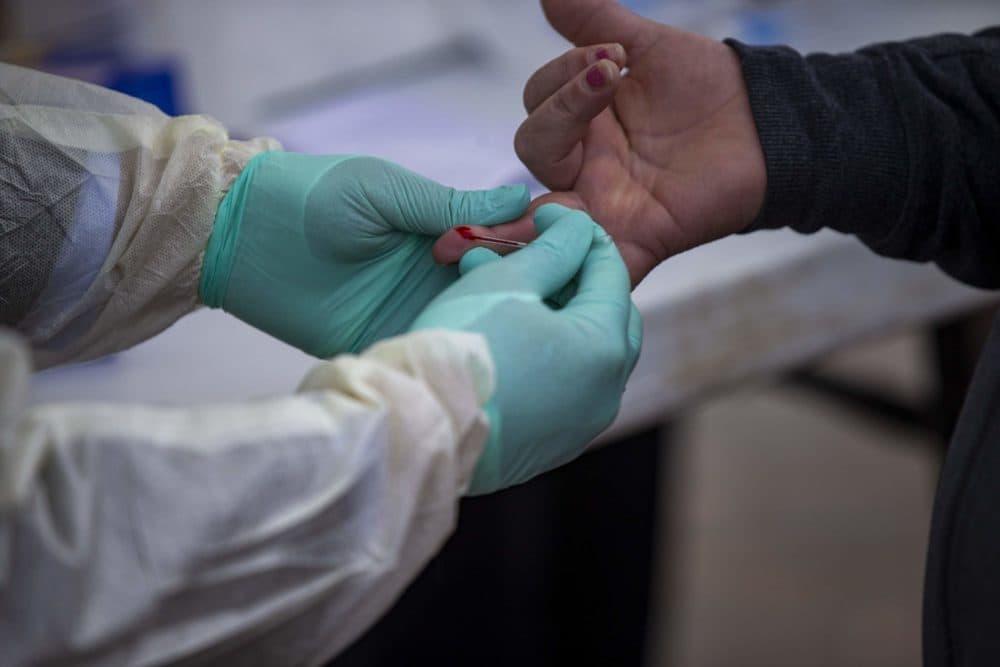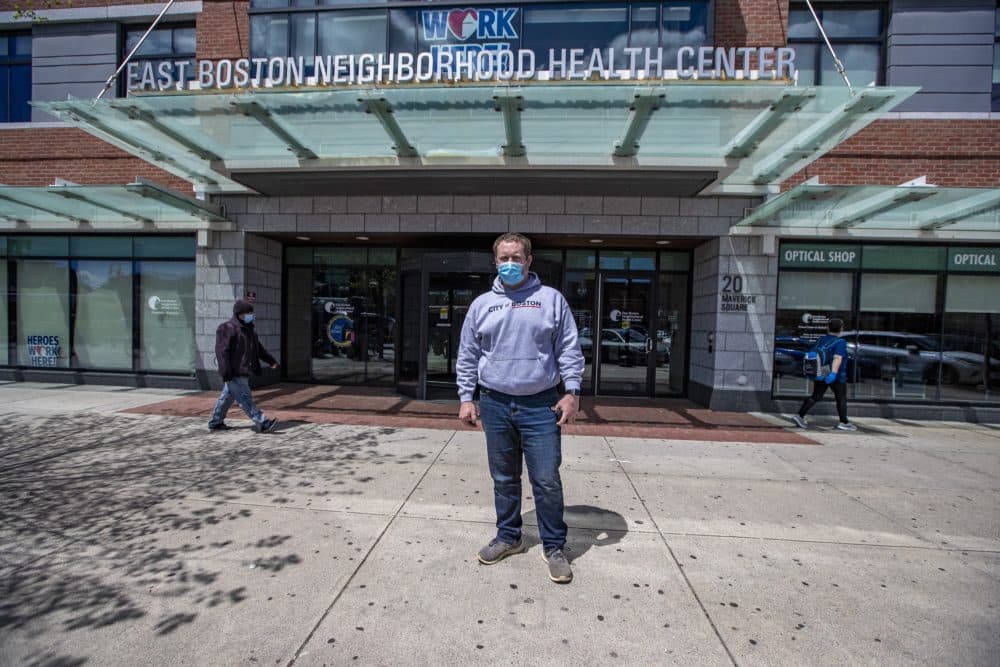Advertisement
Coronavirus Coverage
10% Of Those Tested In Boston Sample Have Coronavirus Antibodies
Resume
There’s a clearer picture of how widely the coronavirus has spread through the city of Boston. Test results released Friday from 750 city employees and residents show 1 in 10 have developed antibodies, meaning they were infected with the virus. And 1 in 40 had the virus even though they had not experienced symptoms.
Boston Mayor Marty Walsh says the numbers tell him two things: that social distancing and other measures have slowed the spread of infection and that most city residents still have not been exposed. Researchers estimated that communities will not have what’s known as herd immunity to the coronavirus until roughly 60% of a population has been exposed.
“This underscores what we already know, that we have to move cautiously and stay focused on what got us this far,” Walsh said in a statement. “This can be done by a gradual, phased-in approach to reopening that includes clear health criteria and safety guidelines for each industry and depends on testing and hospital metrics reaching certain benchmarks, and continuing to move in the right direction."
The Boston testing was conducted at drive-through sites in East Boston, Roslindale and Dorchester by researchers at Massachusetts General Hospital. Participants had their fingers pricked for a blood sample used to look for antibodies and a nasal swab to diagnose a current case of the virus. Anyone who’d been diagnosed with COVID-19 or who had symptoms of the coronavirus was excluded from this study.
Massachusetts General Hospital president, Dr. Peter Slavin, says the results show the need for continued precautions.
“We also know that COVID-19 will be with us for a while,” Slavin said in a statement. “It is vital therefore that we be thoughtful and careful about reopening, and that we continue to take actions — wearing masks, physical distancing, working from home when possible, limiting gatherings — that can prevent another surge of the disease."
Dr. John Iafrate, the lead researcher at Mass. General, says he knows people are hoping a positive antibody test means they are protected from the virus, but there’s no proof yet that’s the case.
“We’d love to offer them some source of comfort in this time,” he says. “If you have antibodies, it actually is good news for the individual. It means they came through it. We just are counseling people, that does not mean that you can be reckless because if you get exposed again, we don’t know what that means.
There’s widespread interest in using antibody test results to determine who might be safe to travel, who can work in close proximity to others and who can care for those who are infected with the coronavirus.
The Baker administration issued its own cautions about reliance on antibody test results this week, which includes this statement: “At this time, antibody testing should not be used to guide release from isolation or for return to work purposes and are not indicated for diagnostic purposes.”
“I think for all of us, it's kind of alarming and eye opening."
Mayor Marty Walsh
While 10% of Boston residents developed antibodies, similar testing in Chelsea found that 32% of the 200 residents tested there in mid-April had antibodies in their blood.
Walsh says the 10% figure is lower than what he would have expected in Boston. He suggests the actual number of people, in a larger sample size, might be 15-20%. But either way, Walsh says Boston is a long way from widespread immunity.
“We're still only in the early innings of a baseball game,” he says. “I think for all of us, it's kind of alarming and eye opening."
Walsh says he, like so many others, wants to be out in a vibrant city again.
“I want to see people coming back in. I want to see construction starting again. I want to see our restaurants full. I want to see our retail shops full. I want to go to Fenway. I want to go to Foxboro. I want to go to the Garden. I want to do all the stuff that's been missing,” he says. “But we can't, out of ... safety, just jump right back into it.”
Michael Sulprizio, who works in Boston’s property management department, is one of the city employees who volunteered to be tested. Sulprizio, who lives in East Boston, is negative for both the diagnostic and antibody tests. He says the results offer some peace of mind but haven’t changed the concern he feels or the need to protect himself and his family.
“I don’t see myself starting to throw parties or not wearing a mask or not using hand sanitizer,” he says. “I’m still going to comply fully with all the orders and advice being given out by the mayor.”

There are questions about the accuracy of the antibody test used in Boston. BioMedomics, the test maker, stopped selling it in the U.S. this week after the test failed to meet new FDA accuracy standards.
BD, the company’s commercial partner, says its completed development of a second generation of the test.
“BioMedomics intends to submit a new [emergency use authorization] application to FDA once the second-generation test has successfully completed all validation testing,” a statement said.
Researchers at Mass. General say their own validation of the BioMedomics test show it is accurate. Iafrate says the FDA reviewed the MGH data and agreed to the hospital’s use of the test.
“We are confident in the results,” he said.
This segment aired on May 15, 2020.
